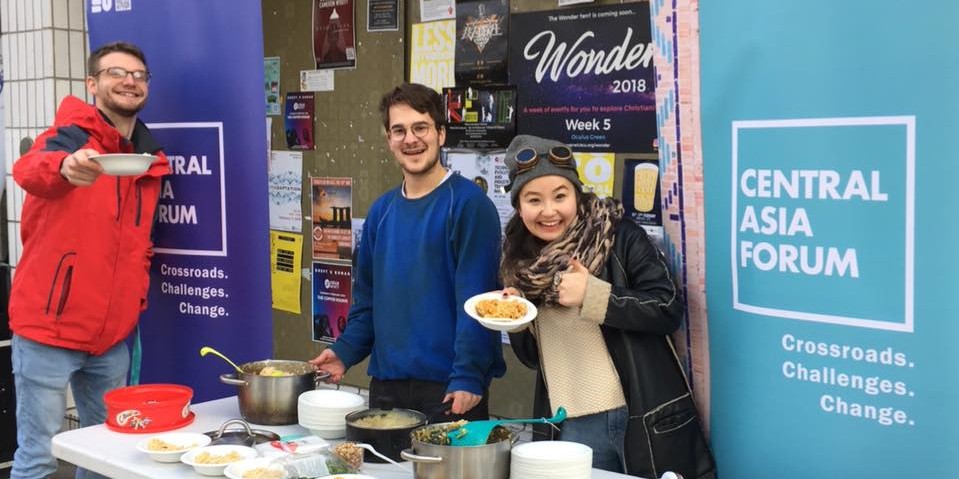First student-led Central Asia Forum in the UK held at Warwick
The UK’s first student-led Central Asia Forum, organized by three Warwick finalists, took place in the Oculus over last weekend.
Motivated by exploring new spaces and uncovering the challenges of this vast but largely unknown area, the day-long forum hosted speakers from government, academic and non-profit sectors.
Presentations and seminars covered the theme of Central Asian nations, approaching this from cultural, political, and economic perspectives. One of the speakers, His Excellency Erlan Idrissov, Kazakh ambassador to the UK, praised the event as a much-needed Western initiative by “new generations interested in new geographies.”
The forum was inspired by the organisers’ time spent in and around Kyrgyzstan, and sought to raise and spread awareness of the histories, hardships, stereotypes and identities of this often overlooked region.
The Central Asia Forum, which its organisers intend to be first of many, furthermore aimed to provide a platform to share information and facilitate conversation about this “fast-paced dynamic region.”
Presentations were held on a range of topics; political speakers included Stanislav Pritchin, research fellow from Chatham House, Alisher Ilkhamov, programme officer at the Open Society Foundation, and His Excellency Erlan Idrissov, the former Kazakh foreign minister.
Pritchin presented the political situation in the region, including the duality of Russian and Chinese interests in Central Aisa, while Ilkhamov spoke about the neopatrimonial nature of Uzbek leadership, power vacuums and historical divisions of power.
New generations interested in new geographies
Finally, striking a friendly tone, Idrissov made a brief explanation of Kazakhstan’s development stressed the importance of nation building in the country, breaking away from an oppressive Soviet history, and the illusions of building a Western styled democracy in his country.
Discussing a perhaps more obscure aspect of the region, Saipira Furstenberg, researcher at the University of Exeter, spoke on exiles having to leave authoritarian states in Central Asia.
Just before the ambassador’s speech, Diana Kudaibergenova, post-doctoral fellow at Lund University, gave a presentation on Central Asian art, focusing on artists from Kazakhstan. Her talk covered the art-dealing sector, with questions of identity, breaking away from Socialist Realist traditions and contemporary artists’ engagement with nationalism alongside the recreation of Kazakh identity.
The forum also included a seminar session, where participants could choose to take part in classes on societal, cultural, or political issues in Central Asia.
The last two presentations were by Paolo Sorbello, who explained dynamics of energy and foreign policy in Kazakhstan, Uzbekistan, and Turkmenistan, and Mark Jahne, a former volunteer in the US Peace Corps working on improving HIV education in rural Kyrgyzstan.
The friendly environment, professional attitudes and heterogeneity made a thought-provoking forum, with the many questions from the audience suggesting a genuine interest in the relatively unknown world of Central Asia.

Comments